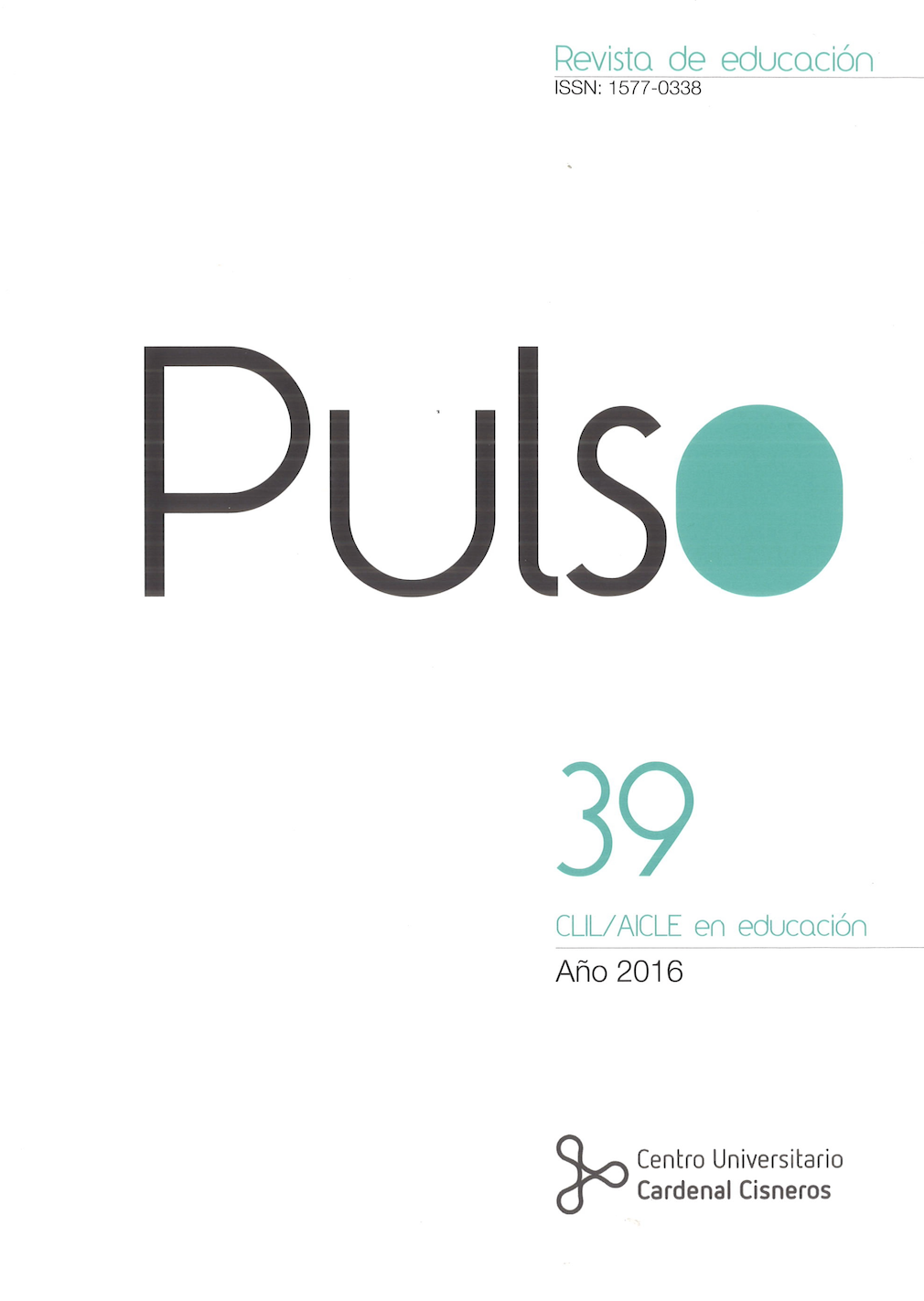MeCUCC Project: Mindfulness for a holistic education
DOI:
https://doi.org/10.58265/pulso.5098Keywords:
Mindfulness Education, Comprehensive Education, New AwarenessAbstract
The Project MeCUCC, within the framework of the Project QÉREB, derives from a renewed mission of the University Center Cardenal Cisneros. The main objective of this project, built upon the concept of full awareness, is to develop the link between inner observation and external understanding in order to optimize the responsiveness towards the available educational resources, as well as to contribute more effectively to the educational process of the students. The CUCC is fully aware of the need to prepare people to become active agents in social transformation, understanding that in the educational process it is necessary to go beyond the mere transmission of content and skills. The proposed path to achieve this is the promotion of awareness and critical thinking, self-observation, holistic understanding and empathy, as well as collaborative ability and creativity. These are key resources that predispose us as citizens to get involved in achieving a more efficient, fair, friendly and supportive XXI century society
Downloads
References
Actitud Mindfulness: www.actitudmindfulness.com
Adam, B. (19 de junio de 2013). In Head-Hunting, Big Data May Not Be Such a Big Deal. New York Times. Recuperado de http://www.nytimes.com/2013/06/20/business/in-head-hunting-big-data-may-not-be-such-a-big-deal.html?pagewanted=1&_r=1&smid=tw-nytimesbusiness&partner=socialflow
Bauman, Z. (2013). Sobre la educación en un mundo líquido. Conversaciones con Ricardo Mazzeo. Barcelona: Paidós Estado y sociedad.
Bauman, Z. (2006). Vida líquida. Barcelona: Paidós Estado y sociedad.
Carrizosa, S. (26 de abril de 2016) La revolución digital en España se queda sin mano de obra. Recuperado de: http://economia.elpais.com/economia/2016/04/25/actualidad/1461606018_234064.html
Cebolla, A., Gracia-Campayo, J. y Demarzo, M. (coords). (2015). Mindfulness y ciencia. De la tradición a la modernidad. Madrid: Alianza editorial.
Csikszentmihaly, M. (2013). Fluir. Una psicología de la felicidad. Barcelona: Ed. Kairós.
Doria, J.M. (2012). Inteligencia del alma. 144 avenidas neuronales hacia el yo profundo. Madrid. Kayzen.
Doria, J.M. (2010). La salida está dentro. Madrid: Ed. Mandala
Dors, P. (2012). Biografía del silencio. Breve ensayo sobre meditación. Madrid: Siruela.
Flook L. et al. (2013): “Mindfulness for teachers: A pilot study to assess effects on stress, burnout and teaching efficacy”. Mind, Brain and Education 7(3), 182-195.
Gardner, H. (13/4/2016): “Una mala persona no llega nunca a ser un buen profesional”. La vanguardia. Recuperado de http://www.lavanguardia.com/lacontra/20160411/401021583313/una-mala-persona-no-llega-nunca-a-ser-buen-profesional.html?utm_campaign=botones_sociales&utm_source=twitter&utm_medium=social
Hernando Calvo, A. (2015). Viaje a la escuela del siglo XXI. Así trabajan los colegios más innovadores del mundo. Madrid: Fundación Telefónica.
Informe PISA. Recuperado de http://www.mecd.gob.es/prensa-mecd/dms/mecd/prensa-mecd/actualidad/2013/12/20131203-pisa/pisa-2012.pdf
Johnson C. (2011). La manera disrruptiva de aprender. Programa Redes 102. Recuperado de http://www.redesparalaciencia.com/5795/redes/redes-102-la-manera-disruptiva-de-aprender
Kabat-Zinn, (2016). Mindfulness para afrontar el estrés, el dolor y la enfermedad. Conferencia en la Facultad de Medicina UCM (26. 4. 2016).
Kabat-Zinn, J. (2007) La práctica de la atención plena. Barcelona: Ed. Kairós.
Kurzweil, R. (2006) Sobre cómo la tecnología nos transformará. Ted. https://www.ted.com/talks
/ray_kurzweil_on_how_technology_will_transform_us/transcript?language=es
Lantieri L. y Zakrzewski V. (2015): “How SEL and Mindfulness Can Work Together”: Recuperado de http://greatergood.berkeley.edu/article/item/how_social_emotional_learning_and_mindfulness_can_work_together
LOMCE: http://www.mecd.gob.es/educacion-mecd/mc/lomce/inicio.html
Marina, J.A. (26/4/2016) El nuevo modelo de inteligencia: hacia una pedagogía científicamente fundada. El Confidencial. Recuperado de http://www.elconfidencial.com/alma-corazon-vida/educacion/2016-03-15/nuevo-modelo-inteligencia-pedagogia-cientificamente-fundada-jose-antonio-marina_1168419/
Marina, J.A. (2015). Despertad al diplodocus. Barcelona: Ariel.
Marina J.A. (2011). El cerebro infantil: la gran oportunidad. Barcelona: Ariel.
Peterson, C., Park, N. y Seligman, M. (2005) Orientations to happiness and life satisfaction: the full life versus the empty life. Journal of Happiness Studies, 6, 25-41.
Poh M. Z., Swenson, N. C., Picard, R. W. (2010): “A wearable sensor for unobtrusive, long-term assessment of electrodermal activity”. IEEE TransactionsonBiomedicalEngineering 57 (5), 1243-1252.
Proyecto Qéreb. Marco para la educación de la interioridad (2015). Provincia Marista Ibérica.
Robinson. K. Y Aronica, L. (2015). Escuelas creativas. La revolución que está transformando la educación. Barcelona: Grijalbo.
Robinson. K. Y Aronica, L. (2009). El elemento. Descubrir tu pasión lo cambia todo. Barcelona: Ed. Kairós.
Schoeberlein, D. (2011). Mindfulness para aprender y enseñar. Estrategias prácticas para maestros y educadores. Madrid: Gaia Ediciones.
Siegel, D.J. (2010). Cerebro y Mindfulness. La reflexión y la atención plena para cultivar el bienestar. Barcelona: Paidós Transiciones.
Torres, A. (7 de marzo de 2016). El fin de la titulitis. El País. Recuperado de: http://economia.elpais.com/economia/2016/03/03/actualidad/1457024681_163769.html
Wilber, K. (2013). Encuentra tu verdadero yo. https://www.youtube.com/watch?v=bApFwnfknZE
Wilber, K. (2014). Entrevista a Ken Wilber. Jornadas Integrales 2014. Asociación Integral. Recuperado de http://www.asociacionintegral.es/2014/10/05/entrevista-wilber-ji2014/
WISE. (2015). Congreso educativo en DOHA. Fundación Qatar. Recuperado de: http://www.wise-qatar.org/education-real-world-skills-gap.
Downloads
Published
How to Cite
Issue
Section
License
Copyright (c) 2022 Pulso. Revista de educación

This work is licensed under a Creative Commons Attribution-NonCommercial-NoDerivatives 3.0 Unported License.
This journal offers immediate open access to its content based on the idea that offering readers free access to research favours a global exchange of knowledge.
Papers are published in the electronic version of the journal under a Creative Commons License: Attribution-NonCommercial-No derivatives 4.0 International
Authors are allowed and encouraged to promote the post-print version (reviewed and accepted for publication version) of their work online before publishing them. This favours their earlier circulation and dissemination and thus a possible increase in their citation and reach among the academic community.














